Table of Contents
Luxury Vinyl Flooring vs. Hardwood: Which One Is the Better Investment?
Choosing the right flooring for your home renovation is a big deal. It affects how your home looks, how comfortable you feel, and even your home's future resale value.
Two popular flooring options stand out today: luxury vinyl plank (LVP) flooring and traditional hardwood flooring.
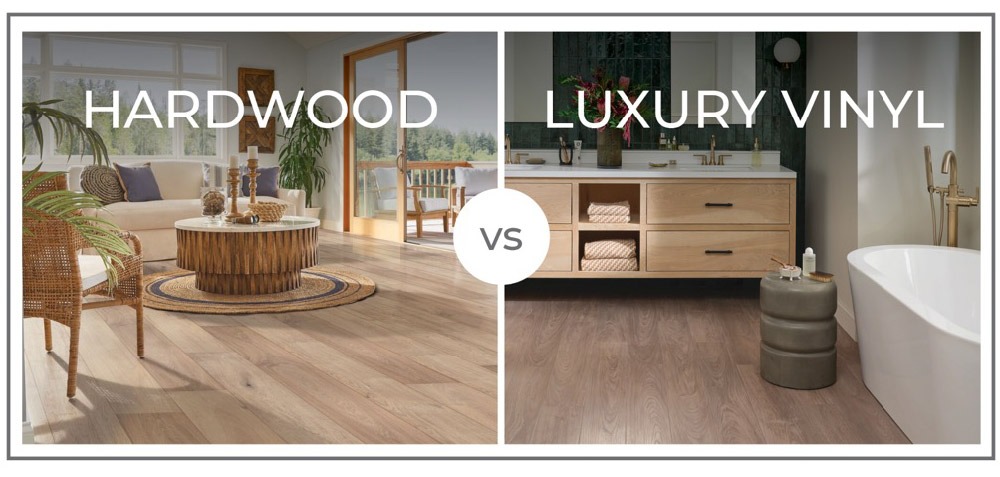
- Luxury Vinyl Plank (LVP) – Modern, affordable, and impressively realistic in mimicking natural wood.
- Traditional Hardwood Flooring – A classic, natural option known for its warmth and timeless style.
Both have strengths and drawbacks. In this guide, we'll clearly compare luxury vinyl plank flooring vs. hardwood flooring in terms of durability, cost, maintenance, and resale value, helping you make a smart, informed choice for your home.
Understanding Hardwood Floor Options: Pros and Cons
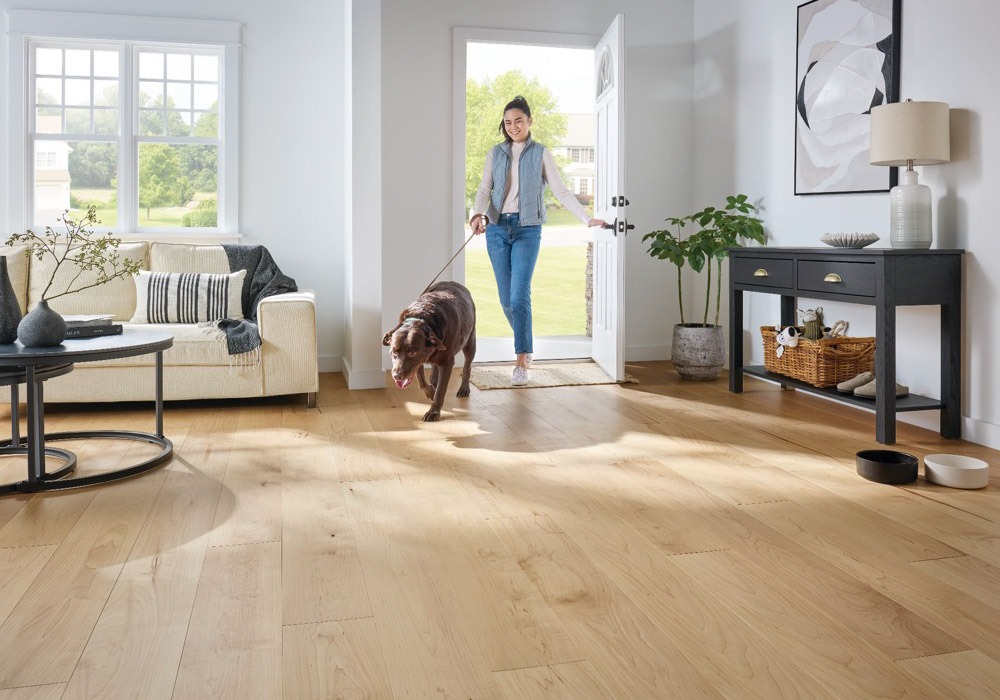
Hardwood floor installations have adorned homes for centuries, providing a timeless elegance that few materials can match.
There are two main types of hardwood flooring to consider:
Solid Hardwood: Made from a single piece of real wood, typically about ¾-inch thick. It naturally highlights unique grain patterns and adds elegance to any room.
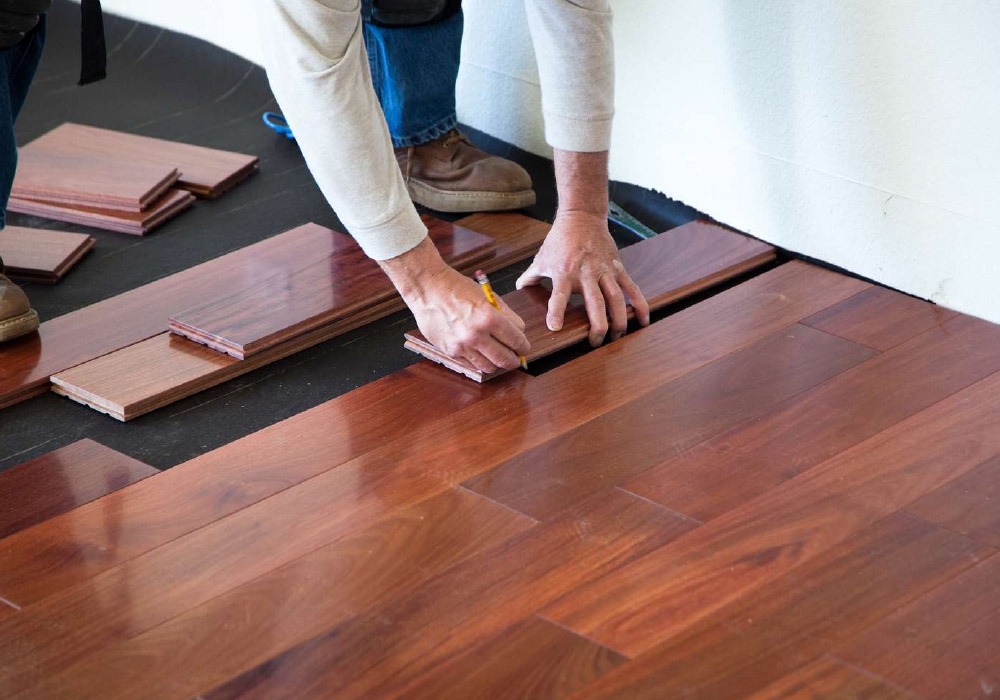
Engineered Hardwood: Constructed with a thin layer of real wood on top and multiple layers of plywood beneath. It handles moisture better than solid wood, making it suitable for basements or areas with humidity changes.
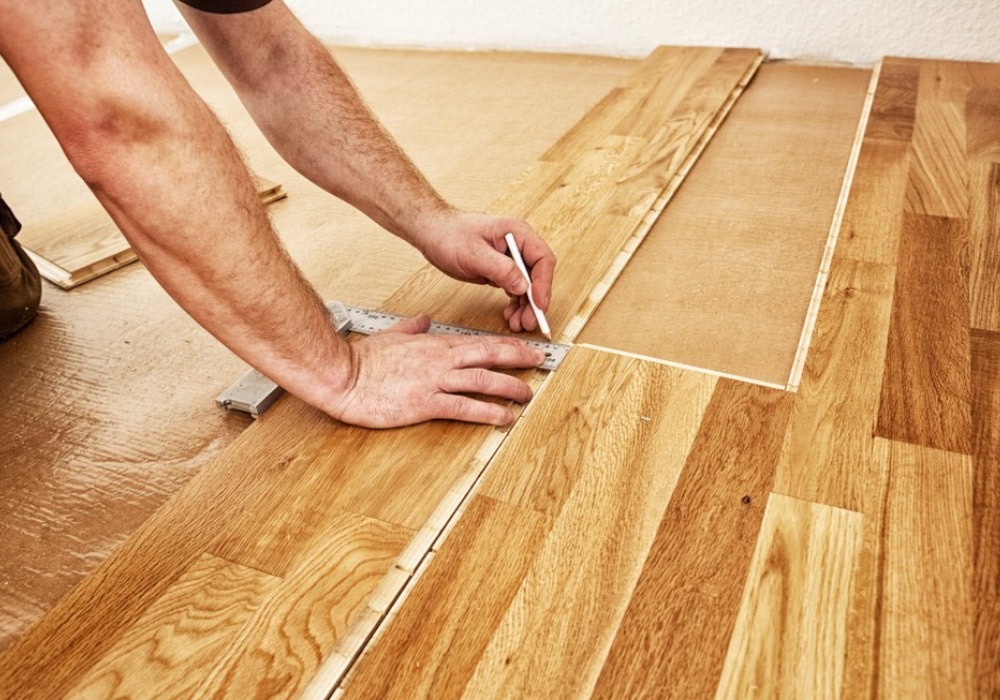
The market offers numerous wood species, each bringing distinct aesthetic qualities and hardness levels, which can influence home value significantly. Oak remains a popular choice for its durability and versatile appearance, while maple provides a clean, contemporary look, making it ideal for any flooring in your home.
For those seeking exotic options, Brazilian cherry or walnut deliver rich, dramatic colorations. Installing hardwood requires expertise, as proper acclimation and installation techniques significantly impact the flooring's performance and longevity.
The Rise of Luxury Vinyl Plank Flooring
Luxury Vinyl Plank (LVP) flooring has quickly become popular in recent years because it combines affordability, durability, and an impressively realistic wood appearance.
Unlike the older styles of vinyl flooring, today's LVP closely imitates real hardwood. Modern printing techniques recreate authentic wood textures and grain patterns, giving floors a convincing, natural look.
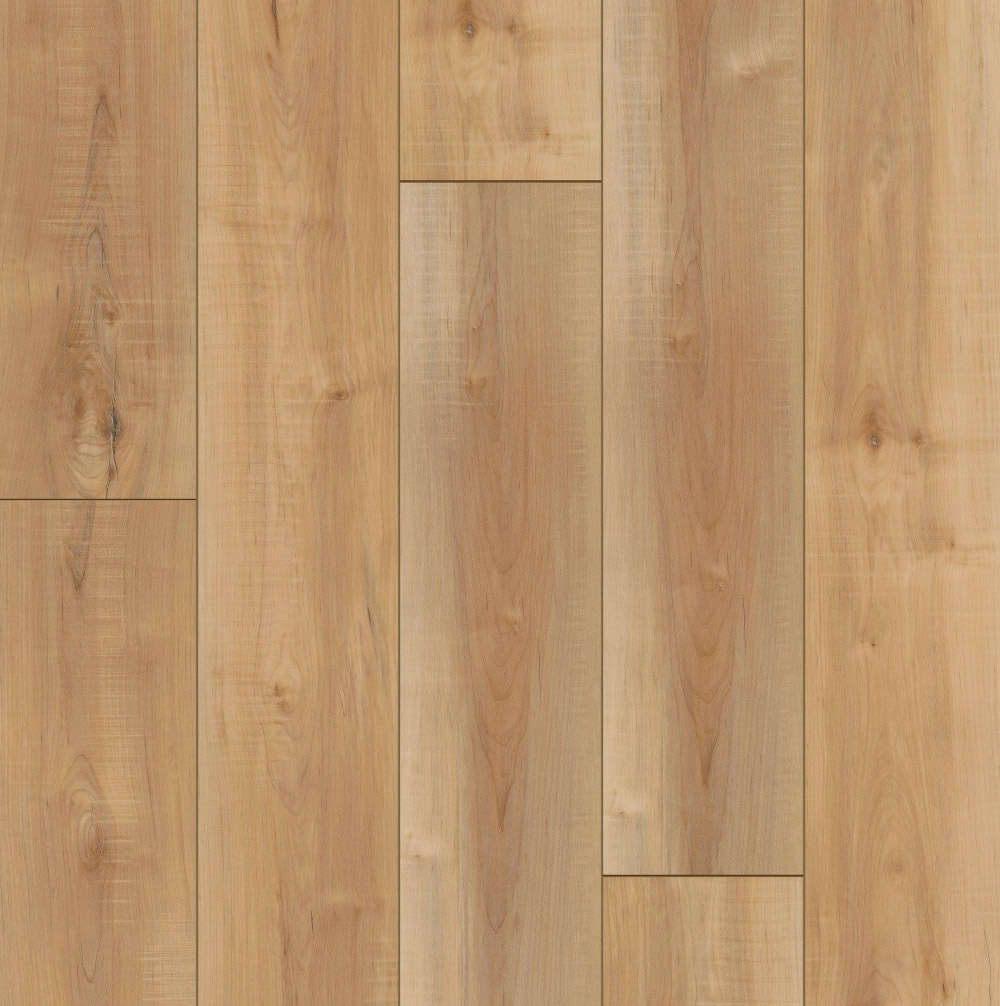
LVP floors typically have multiple layers for added performance. A tough wear layer resists scratches and stains, while the waterproof core ensures stability and protects against moisture damage. A soft backing layer provides extra comfort and helps reduce noise.
One standout benefit of luxury vinyl plank flooring is its waterproof design, making it a smart choice for kitchens, bathrooms, basements, and other moisture-prone spaces. Hardwood can warp or buckle when exposed to moisture, but LVP handles water exposure easily. Additionally, luxury vinyl plank flooring is low-maintenance, durable against everyday wear, and easier to install compared to traditional hardwood flooring.
These features make luxury vinyl plank a strong, practical alternative to hardwood for many homeowners.
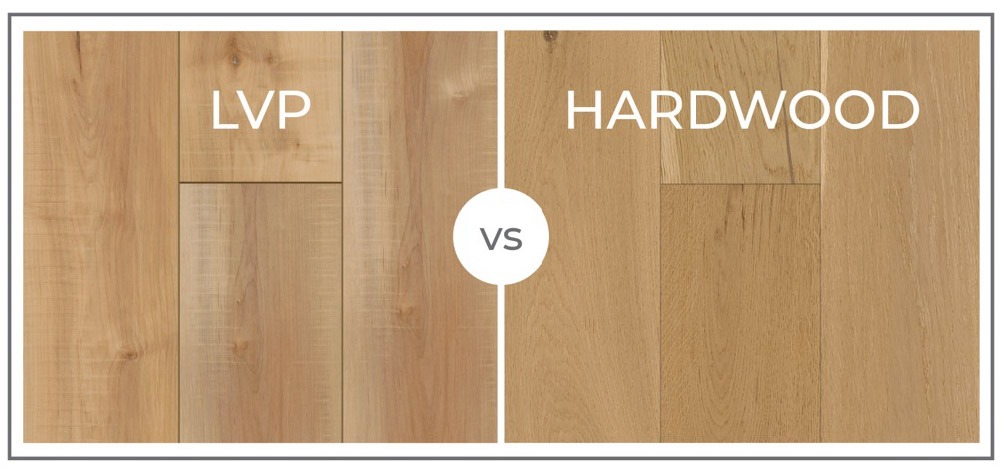
Both hardwood and luxury vinyl flooring are known for durability—but they handle wear and tear differently.
Hardwood flooring can last decades, sometimes even generations, if properly maintained. One major benefit is that some hardwood floors can be refinished several times, making it easy to fix scratches or dullness. This refinishing option significantly extends the lifespan of hardwood, keeping floors looking new over the long run.
Luxury vinyl plank flooring is also very durable, though in a different way. Vinyl floors can't be refinished, but they do have a tough protective wear layer that resists everyday damage like scratches, dents, and stains. Most quality vinyl flooring comes with warranties between 15 and 25 years, showing manufacturers trust their product’s performance. Vinyl flooring also stands up well against moisture and temperature changes, making it more adaptable in tough environments.
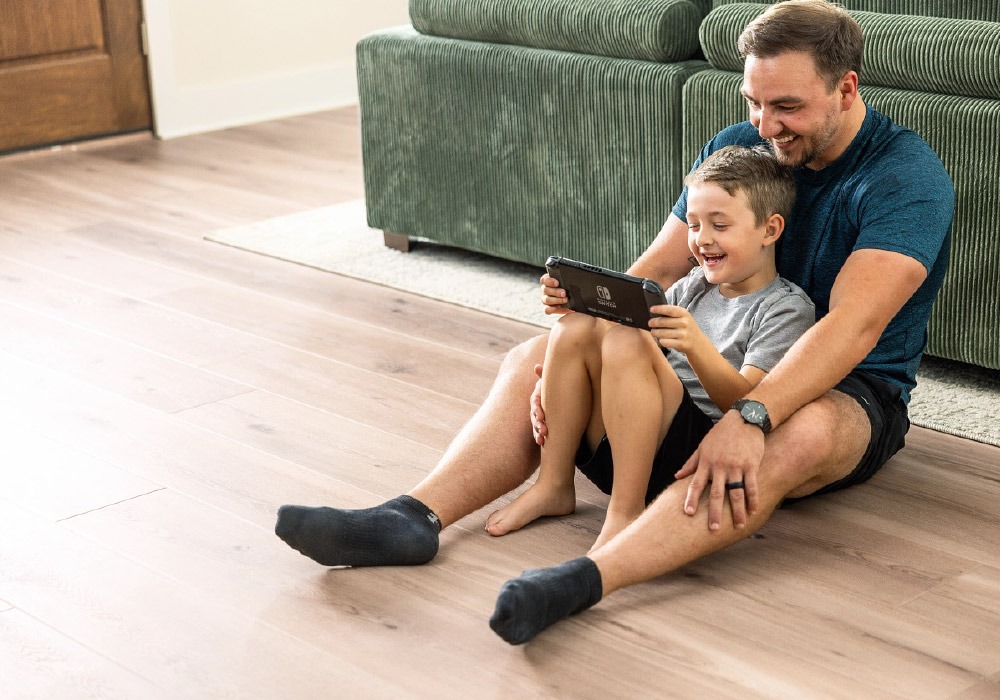
For busy families with kids or pets, luxury vinyl usually handles daily wear better because it’s easier to care for and less sensitive to scratches. Hardwood, while strong, needs extra care to prevent scratches from pet claws or moving furniture. However, vinyl floors can still dent under extremely heavy furniture, and sharp objects may cause permanent damage.
Ultimately, choosing between hardwood and luxury vinyl flooring depends on your home’s daily needs, lifestyle, and how much maintenance you’re comfortable doing.
Installation Considerations: Vinyl vs. Hardwood Flooring
Flooring installation represents a significant component of your overall project cost and can influence your decision between hardwood and luxury vinyl.
Installing hardwood is usually more complicated and expensive. You’ll need professional installers who will first let the hardwood adjust to your home’s humidity and temperature for a few days. The installation itself involves attaching planks to the subfloor using nails, staples, or glue, requiring special tools and expertise.
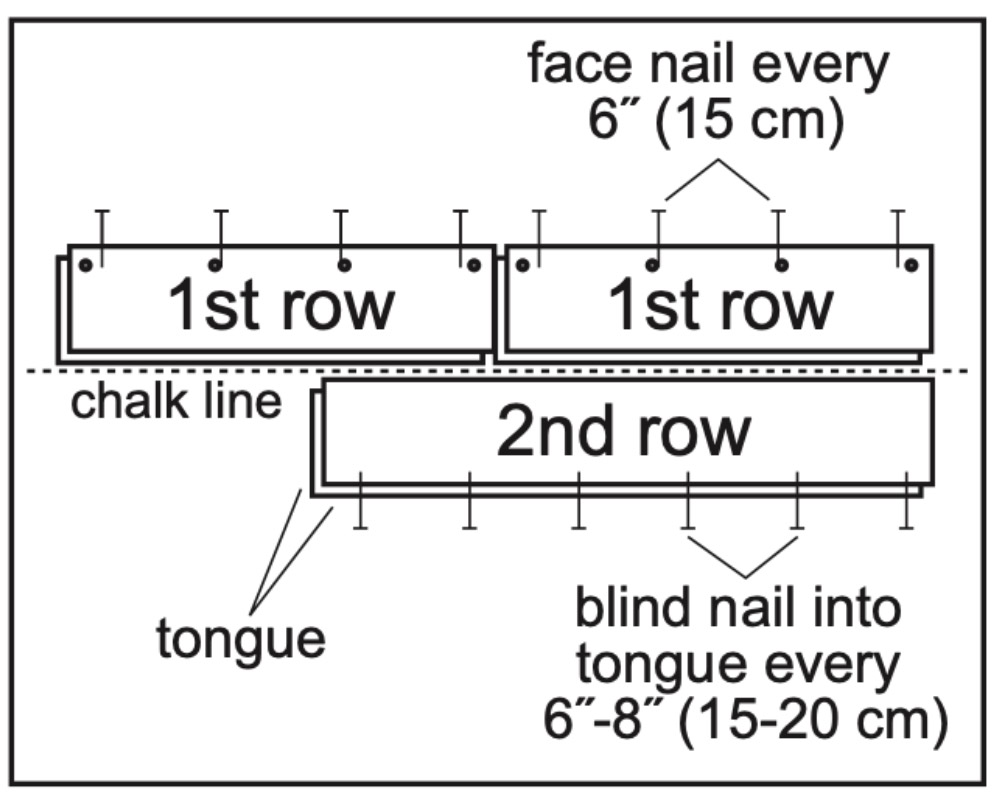
Luxury vinyl plank (LVP) flooring installation, on the other hand, is easier and quicker to install. Most LVP products use a simple "click-lock" system, which means no glue or nails are necessary. You can even install vinyl flooring over existing surfaces—as long as the surface is smooth, clean, and level. Because it’s easier, vinyl usually costs less to install.
If you're comfortable doing projects yourself, vinyl flooring is DIY-friendly. Hardwood typically isn't recommended as a DIY project because mistakes can be costly and harder to fix.
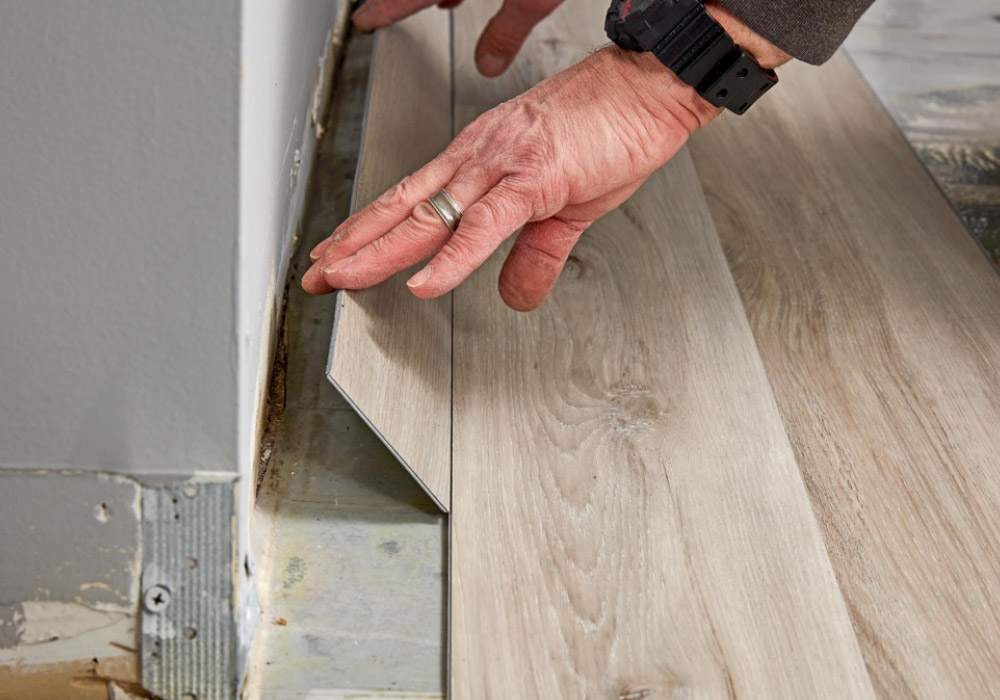
Whichever flooring you choose, make sure your subfloor is properly prepared since imperfections underneath can affect how good the finished floor looks and performs.
Comparing Costs: Hardwood vs Luxury Vinyl Plank (LVP)
Initial investment represents one of the most noticeable differences between these flooring types.
Here’s a clear breakdown to help you compare:
| Flooring Type | Material Cost (per sq. ft.) | Installation Cost | Lifespan (approx.) |
|---|---|---|---|
| Solid Hardwood | $5 - $12 | $7 - $20 (professional required) | 50+ years (can refinish) |
| Engineered Hardwood | $3 - $10 | $6 – $15 (usually professional) | 30 - 50 years (limited refinishing) |
| Luxury Vinyl Plank (LVP) | $2 - $7 | $4.50 and up (easy DIY) | 15 - 30 years (cannot refinish) |
Quick summary:
Hardwood flooring generally has a higher initial cost because of the materials and professional installation involved. However, because hardwood floors can last much longer and be refinished, they often offer better long-term value—especially if you plan to live in your home for many years.
Luxury vinyl plank flooring is attractive due to its lower upfront cost and simple installation. But remember, even the best vinyl flooring typically lasts no more than 30 years and can’t be refinished, meaning replacement is your only option once worn out.
The flooring choice that represents the best investment depends largely on your planned length of homeownership and future selling intentions.
Maintenance and Longevity: Hardwood vs. Vinyl Flooring (Especially for Kitchens)
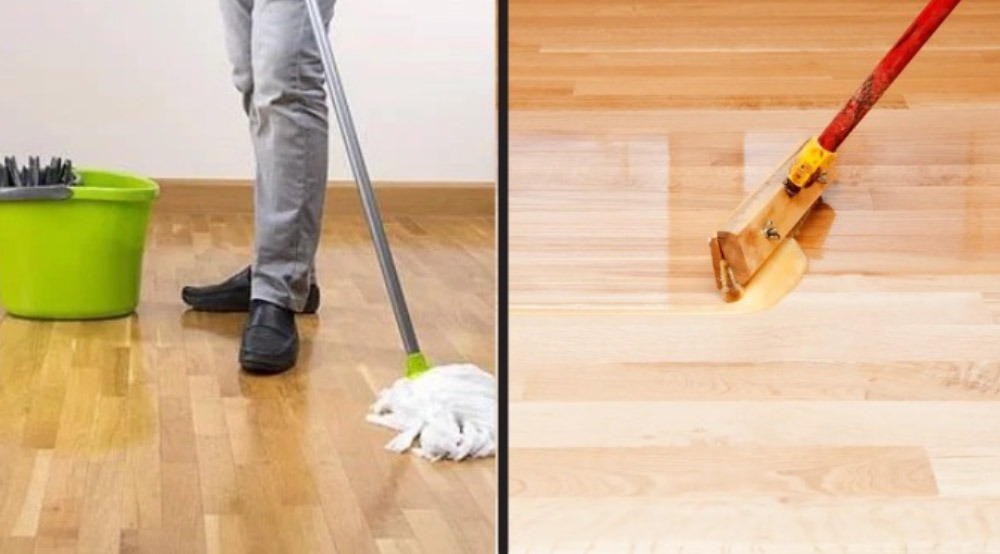
Day-to-day care requirements differ significantly between these flooring types.
Hardwood floors need regular care—sweeping or vacuuming frequently to avoid scratches from dirt and debris. You'll need to clean spills immediately to prevent water damage. Every few years (around 7–10, depending on wear), hardwood floors may require refinishing. Refinishing restores the floor’s look but typically involves hiring professionals or doing intensive DIY work.
Luxury vinyl flooring is easier and simpler to care for. Regular sweeping and occasional damp mopping with a mild cleaner usually keep vinyl floors in great shape. Since LVP flooring is waterproof, spills and wet cleaning aren't an issue. This makes vinyl ideal for kitchens or busy homes where frequent spills are common.
In terms of longevity, hardwood wins clearly if properly cared for. Hardwood floors can last 50–100 years or even longer. Many historic homes still have beautiful hardwood floors that are more than a century old. Vinyl flooring is durable but typically lasts around 25–30 years at most before needing replacement, as it can’t be refinished.
Choosing between hardwood and vinyl flooring in your kitchen (or elsewhere) comes down to how much time and effort you're willing to put into maintenance, along with how long you want your floors to last.
Resale Value and ROI Considerations: Best For Your Home
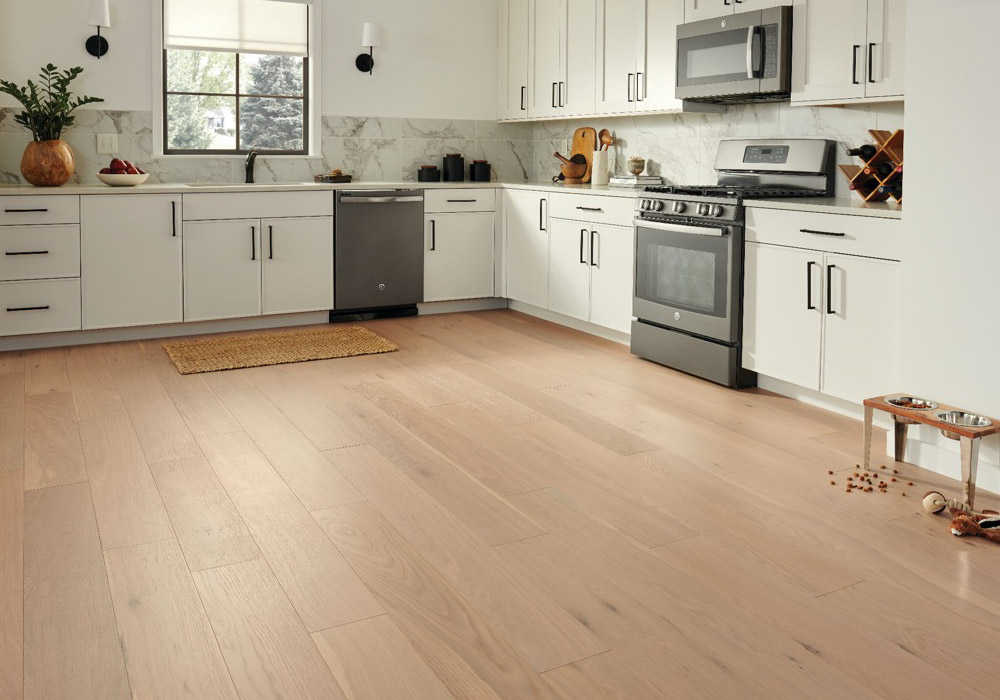
The impact on property value represents a crucial factor when deciding between hardwood and luxury vinyl plank, as the resale value of a home can be significantly influenced by the choice of flooring.
Real estate professionals consistently report that homes with hardwood floors tend to sell faster and at higher prices than comparable properties with other flooring types. Natural hardwood provides a premium feel that many buyers actively seek, potentially offering significant return on investment and enhancing resale value when it’s time to sell. The long-term value of this classic flooring material extends beyond aesthetics to include genuine market advantages, especially for properties with high resale value of a home.
While luxury vinyl is also increasingly accepted in today's real estate market, it generally doesn't add the same level of value to a home as authentic hardwood. However, high-quality LVP that convincingly mimics the appearance of hardwood can still positively influence buyer perceptions, particularly in appropriate applications like kitchens where the waterproof nature of vinyl offers practical benefits. The flooring decision ultimately influences both your daily living experience and your property's future marketability.
When evaluating flooring as a long-term investment, consider your timeframe for remaining in the home.
- Staying 5+ years? Hardwood might justify the higher upfront cost due to its strong resale value.
- Selling sooner? Luxury vinyl could be smarter for short-term ROI, offering a fresh, appealing look without a large investment.
In short, your ideal flooring depends on balancing your immediate budget with your future plans and home resale goals.
Environmental Impact and Sustainability Of Different Types of Flooring Choices
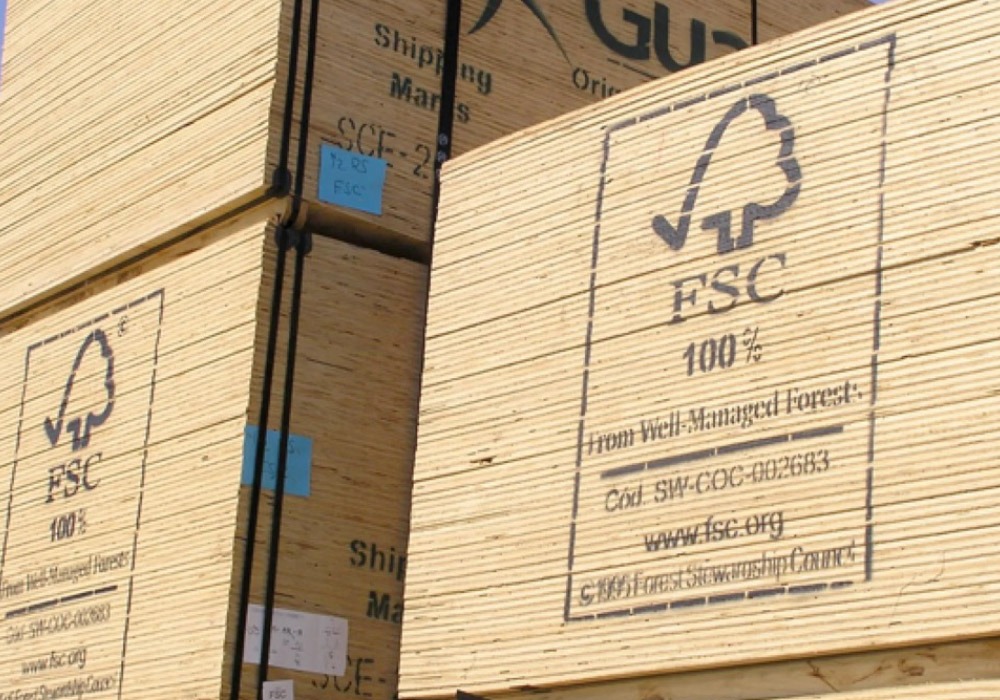
Hardwood is made from natural materials and can be a sustainable choice if sourced responsibly. Many products are FSC-certified, meaning the wood comes from managed forests. Hardwood also lasts for decades, which reduces how often it needs to be replaced.
Luxury vinyl is made from plastic and isn’t biodegradable. It’s petroleum-based, which raises concerns around manufacturing and disposal. However, some brands now offer vinyl with recycled content, low VOC (volatile organic compounds) emissions, and safer ingredients. A few also have recycling or take-back programs to lower environmental impact.
If sustainability is a key factor, hardwood has the advantage. It’s renewable, long-lasting, and naturally breaks down over time. Vinyl is improving, but you’ll need to look for eco-friendly options to reduce its footprint. Hardwood also lasts for decades, which reduces how often it needs to be replaced.If sustainability is a key factor, hardwood has the advantage.
Choosing Between LVP and Hardwood for Different Spaces: Which One Is Right
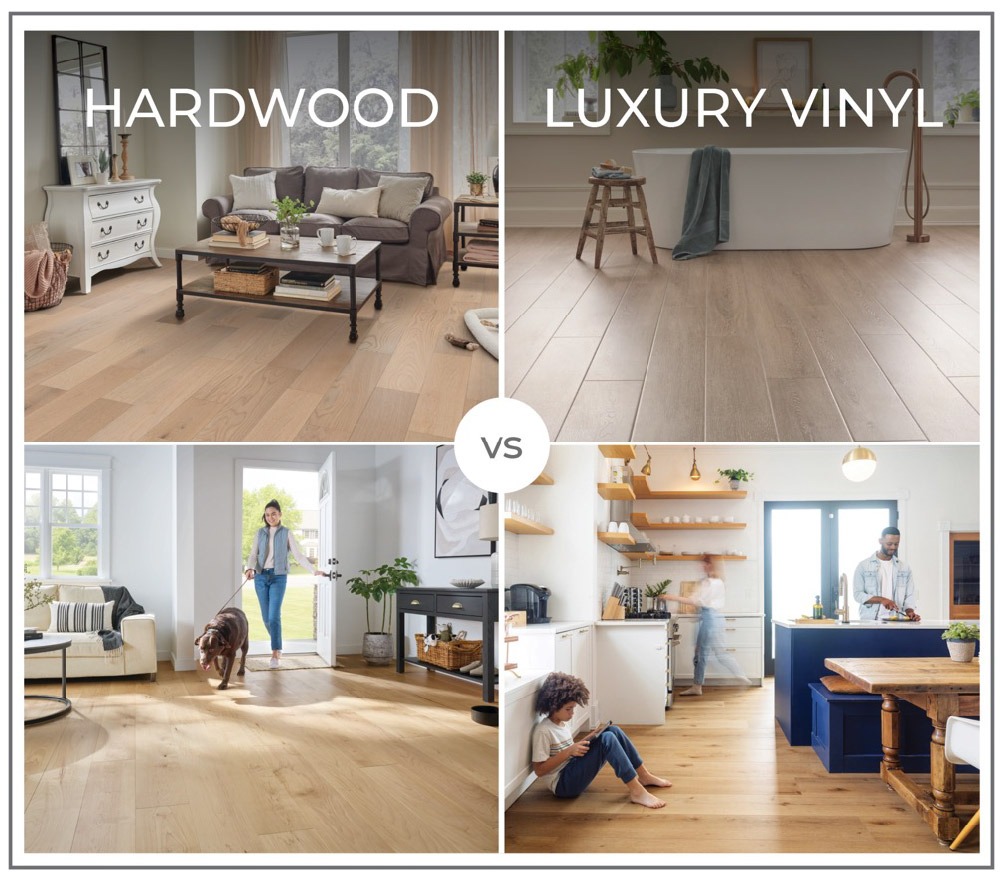
Each room in your home has different needs, and some flooring types are better suited for certain areas than others.
In moisture-heavy spots like bathrooms, basements, and laundry rooms, vinyl is the better option. It’s fully waterproof and holds up well where hardwood would likely warp or get damaged. Even engineered hardwood, while more stable than solid wood, isn't ideal in areas with constant moisture.
Kitchens are trickier. Hardwood looks great and adds warmth, but it can take a beating from spills, drops, and foot traffic. If you’re careful with maintenance, it can work. Still, many people go with luxury vinyl here because it handles messes better and still looks like wood.
For living rooms, dining spaces, and bedrooms, either one can work. Hardwood is a long-term investment with a natural look that holds up for decades. Luxury vinyl is more budget-friendly and easier to maintain, especially in high-traffic areas.
You don’t have to stick with one material throughout the house. A mix of both, luxury vinyl flooring where durability matters, and hardwood where you want that timeless feel. This can give you the best of both worlds.
Final Thoughts: What’s the Smarter Flooring Choice?
There’s no one-size-fits-all answer when it comes to flooring. The right choice depends on your home’s style, your budget, and how you live day to day.
Hardwood is a long-term investment. It fits well with traditional homes, adds strong resale value, and can last for decades if properly cared for. If you're planning to stay in your home for many years and are okay with a little extra maintenance, hardwood might be worth the higher upfront cost.
Luxury vinyl, on the other hand, is a smart choice for busy households, tighter budgets, and moisture-prone spaces. It’s easier to maintain, holds up well to wear and tear, and gives you the look of wood without the same level of upkeep or cost.
Ultimately, think about how long you plan to stay in your home, how much maintenance you’re willing to take on, and what works best for your lifestyle. Once you align those factors, the best option usually becomes clear.
Need help deciding which floor fits your home best?
Our team at Carpet Exchange can walk you through samples, pricing, and more—no pressure, just options!
